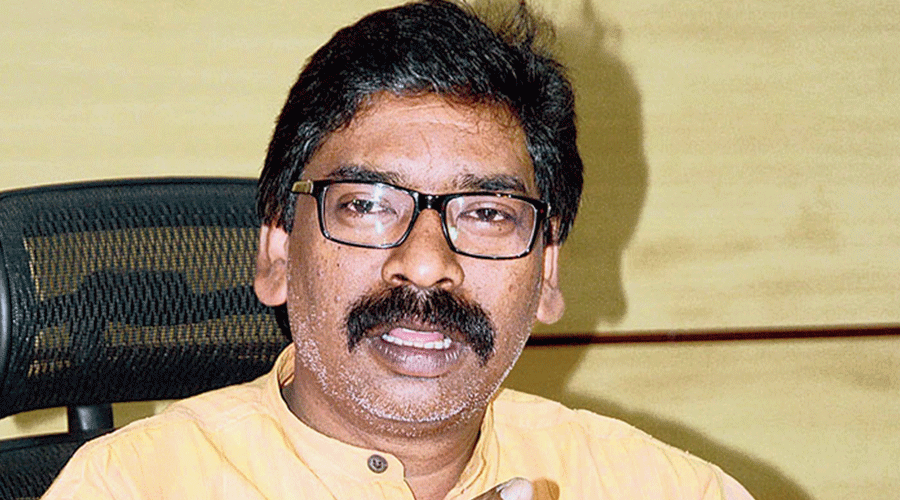The Hemant Soren dispensation has countered the political uncertainty in Jharkhand with measures aimed at helping the marginalised sections, picking emotive issues which the BJP that has been accused of trying to topple the government will find difficult to oppose.
Chief minister Hemant’s fate as MLA has been hanging fire since he got embroiled in an office-of-profit controversy over a mining lease and the Election Commission submitted to the governor on August 25 its opinion on the matter. Governor Ramesh Bais has yet not revealed what step the EC has recommended, creating a period of uncertainty during which the ruling JMM-Congress-RJD alliance feared poaching attempts by the BJP to overthrow the government.
The ruling parties shifted most of their MLAs to a resort at Raipur in Congress-ruled Chhattisgarh. They were brought back just before Hemant sought a trust vote in a special session of the Assembly on September 5. He won the vote comfortably.
On September 14, the state cabinet made two significant proposals — to declare 1932 as the base year for determining the local status of Jharkhand’s residents and to increase reservation for other backward classes from 14 per cent to 27 per cent in Grades III and IV government jobs meant for clerks, peons and other low-ranking staff.
The first proposal aims to recognise as local residents of Jharkhand those whose ancestors’ names, or their own names, are mentioned in the khatiyan (record of rights) prepared on the basis of the survey settlement of 1932.
Sections of tribals, who make up 26 per cent of Jharkhand’s population, and permanent settlers who have been living in the region for generations have for long demanded the “local resident” tag to stop “outsiders” from taking up government jobs in the state.
The proposal will need to be cleared by the Assembly and a central government nod to include it in the 9th Schedule of the Constitution. Moreover, there could be legal challenges because a five-judge constitution bench of Jharkhand High Court had earlier struck down a similar move by the then BJP government in the state.
Many are viewing the decisions of Hemant, who recently accused the BJP of “wanting to destabilise our government by hook or by crook”, as a “masterstroke” as he has lobbed the ball in the BJP’s court and taken up an issue that the Opposition camp would find difficult to object to.
If the BJP opposes the twin proposals, it would give the ruling camp an opportunity to brand the party as anti-people, observers said.
“The sentiments of the people of the state have been honoured (by the cabinet proposals),” transport minister Champai Soren said.
The BJP issued a media statement on September 15, a day after the cabinet proposals, saying the party’s erstwhile government had taken a similar step after Jharkhand was carved out of Bihar in 2000 but the high court had rejected it. The Babulal Marandi government had proposed 1985 as the cut-off year for the appearance of names in the khatiyan for “local resident” status.
Some pointed out that the 1932 khatiyan cannot be accepted as the only criterion because multiple survey settlements have been conducted in different parts of the region over the years and many areas and groups of people have been left out from time to time.
The government has come up with a plan to get around such a hurdle. “There will be a provision where the gram sabhas, considering factors such as language and customs, will issue resident certificates to people (left out in khatiyans),” rural development minister Alamgir Alam said.
As the high court had nixed such an effort in the past, it would be difficult to clear the proposal for local status, a commentator said, adding that its political value, however, could not be overlooked.
The Hemant government has also taken other decisions such as introducing a universal pension scheme, bringing back an old pension scheme for government employees, giving 13 months’ salary to police personnel in a year and increasing the remuneration of anganwadi workers.
These prompted people to organise thanksgiving rallies last week to the chief minister’s residence.
“Even if Hemant is eventually disqualified as an MLA, all these will help him face the electorate successfully during the next election,” the commentator said.

